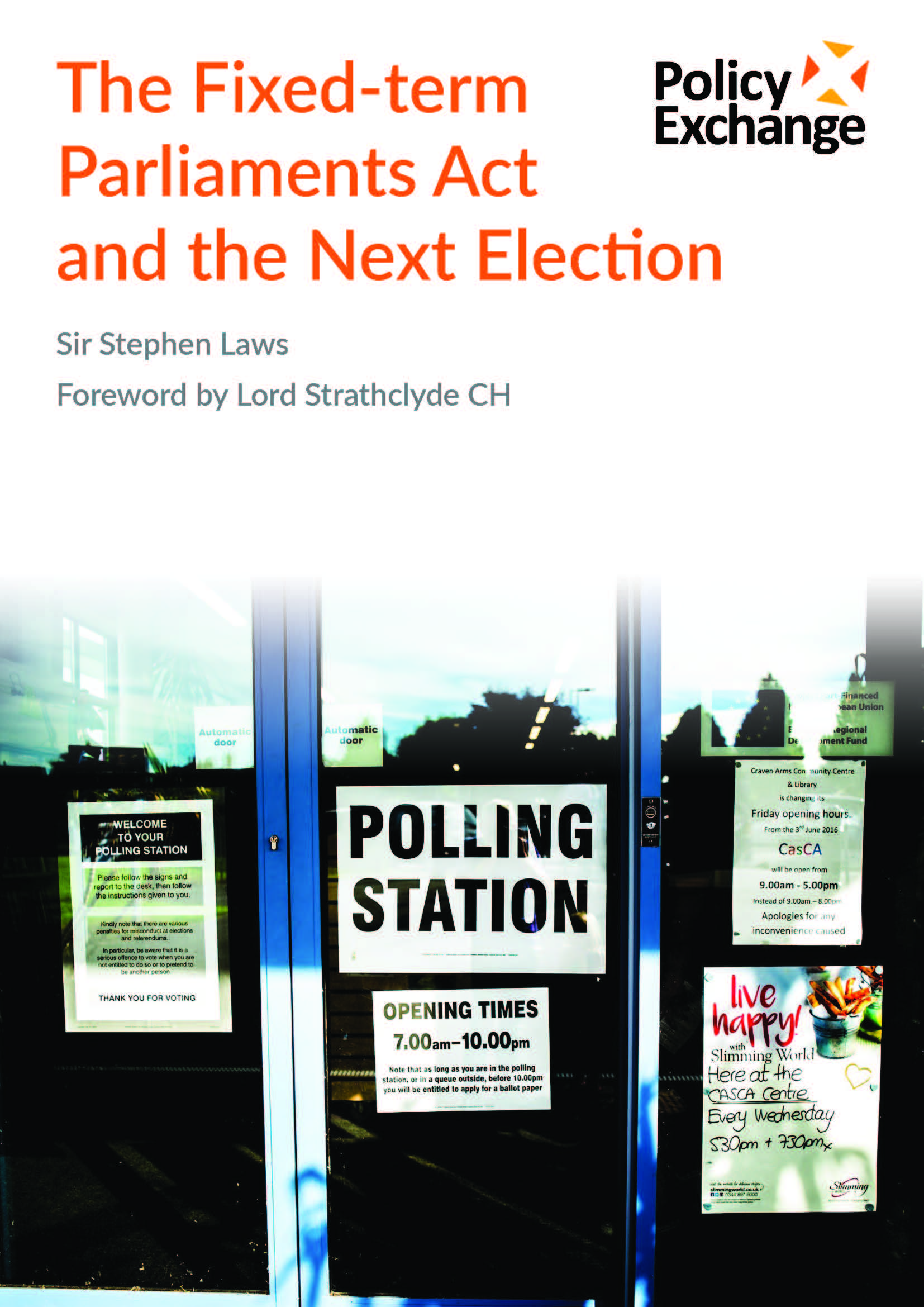
The Fixed-term Parliaments Act and the Next Election
Under the Fixed Term Parliaments Act, if the government loses a vote of no confidence (VONC), there are 14 days in which either the incumbent government or a new government appointed by the Queen may attempt to win a vote of confidence. Otherwise, the Act requires the dissolution of Parliament and an early election.
Policy Exchange’s Senior Fellow and former First Parliamentary Counsel Sir Stephen Laws shows that there is no legal or constitutional obligation on the Prime Minister to resign and make way for the formation of an alternative government. Instead, the Prime Minister might choose to remain in office throughout the period in order to bring about an early general election.
Whether this is justifiable is a political question, not a legal question, and is absolutely not a matter for the courts to decide. In a Foreword, former Leader of the House of Lords Lord Strathclyde confirms that Parliament “made a deliberate choice not to legislate about what should happen during the 14 day period after the Government loses a VONC”.
The Fixed Term Parliaments Act and the Next Election sets out how:
- The PM could pursue an election by remaining in office during the 14 day period and would have a good argument for not resigning.
- In the present circumstances, any alternative government proposed during this period would fail to satisfy the Lascelles principles under which the Queen could, before 2011, refuse dissolution – and would in any case need to offer a rapid election.
- An offer of a second referendum instead of an election would not compensate for the absence of a workable and effective programme for government during the months it would take to organise a referendum.
- Where an election is triggered by a no confidence crisis the incumbent government is entitled to retain office until the election result is known.
- The courts should not involve themselves in the political question of whether or not the Prime Minister should resign. A deliberate decision was made in 2011 not to legislate about what happens during the 14 day period after VONC – precisely to avoid litigation by ensuring that it should not be a matter for the courts. Any intervention by the courts would therefore be in defiance of the express intentions of the legislators.
- Politicians on all sides have a responsibility not to draw the Queen into the political battle.

